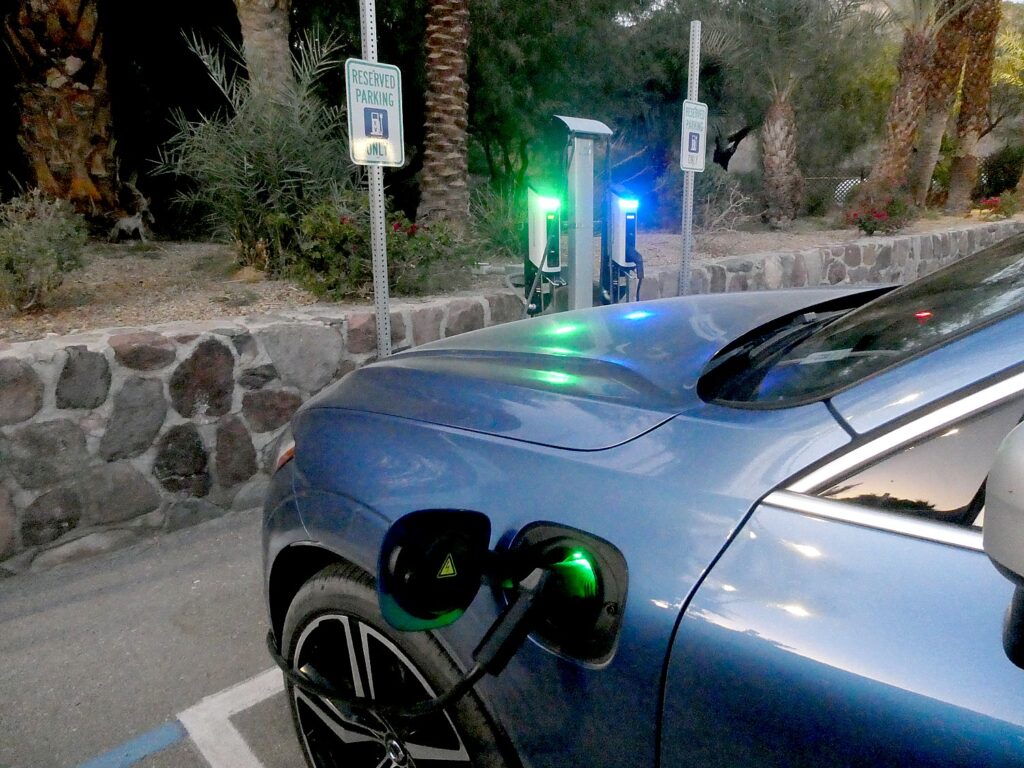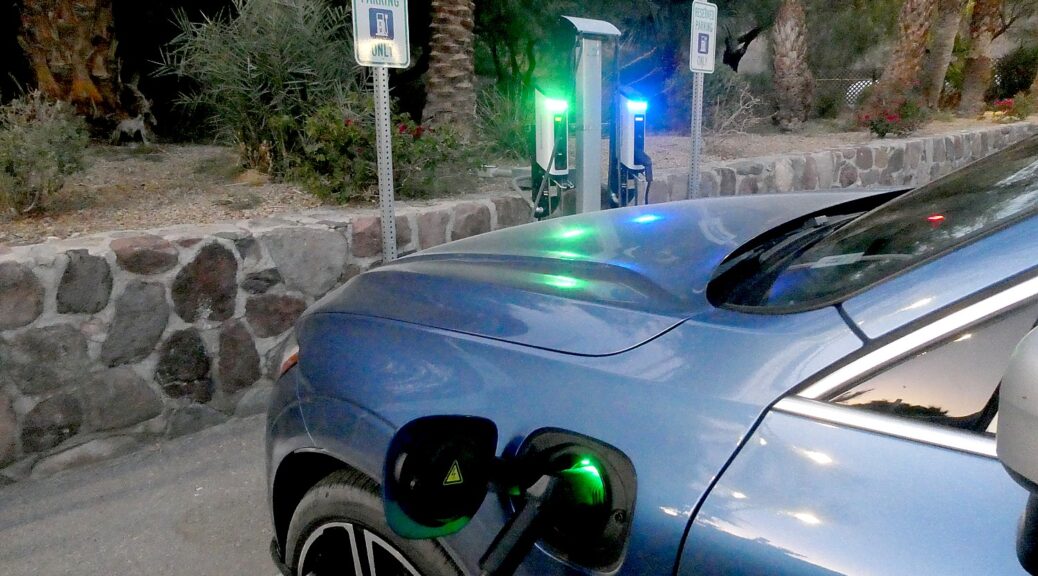Tritium Announces EV Charger Manufacturing Facility in Tennessee; To Produce Up To 30,000 Buy America-Compliant Chargers Per Year, Create 500 Jobs

This fact sheet from the White House details progress the Biden-Harris Administration has made to use a “whole of government” approach to revitalize the United States’ manufacturing base, strengthen critical supply chains, drive down prices, and position American workers and businesses to not just compete but lead the world in the 21st century:
Since his first day in office, President Biden relentlessly focused on an industrial strategy to revitalize our manufacturing base, strengthen critical supply chains, drive down prices, and position U.S. workers and businesses to compete and lead globally in the 21st century. This whole-of-government effort is leading to a historic recovery in domestic manufacturing. During President Biden’s first year in office, the economy added 367,000 manufacturing jobs – the most in nearly 30 years. The U.S. economy grew at the fastest pace in nearly 40 years in 2021, and manufacturing as a share of U.S. GDP has returned to pre-pandemic levels. Manufacturing activity has seen a significant expansion every month that President Biden has been in office, consistently above pre-pandemic levels.
The Build America, Buy America Act in the Bipartisan Infrastructure Law expands on the Biden-Harris Administration’s work to ensure that the future is made in America by American workers by strengthening and expanding Buy America rules to all taxpayer-funded infrastructure and public works projects.
President Biden and Jane Hunter, CEO of Tritium, announced that Tritium will break ground on its first U.S. manufacturing facility in Lebanon, Tennessee. This facility will house six production lines that will produce up to 30,000 Buy America-compliant DC Fast Chargers per year at peak production and create 500 local jobs.
This is the latest of announcements in recent weeks by major companies announcing investments in U.S. manufacturing and jobs, including Intel, General Motors, and Boeing, and more than $200 billion in investments in domestic manufacturing of semiconductors, electric vehicles, aircraft, and batteries announced since 2021.
In addition to Tritium, EV charging manufacturers large and small are investing and expanding U.S. operations, driven by the Administration’s economic strategy, Made in America policies, and the Bipartisan Infrastructure Law:
- Siemens, which is investing and expanding its U.S. manufacturing operations to support electric vehicle infrastructure in America, will produce 1 million EV chargers by 2025. This investment, spurred by the passage of the Bipartisan Infrastructure Law, is the latest in the company’s strategic plan to meet accelerating electric vehicle charging demand, and expand its U.S. manufacturing capabilities.
- ABB, which currently manufactures Buy America-compliant transit bus chargers in the U.S., will expand its US EV charging manufacturing operations, including Level 2 and DC Fast Chargers, over the coming five years, employing hundreds of Americans and producing thousands of EV chargers each year.
- FreeWire Technologies, based in Oakland, California, currently manufactures Buy America-compliant battery-integrated EV charging equipment, and recently announced groundbreaking on a research, manufacturing, and testing facility in Newark, California. FreeWire currently employs and plans to add more than 200 jobs in electrification and clean energy in and around disadvantaged communities this year.
- Dunamis Clean Energy Partners, a Black- and woman-owned EV charger manufacturer based in Detroit, Michigan, will manufacture Level 2 EV chargers and charging connectors in a new production facility in Detroit beginning this summer. Dunamis’ training and workforce development efforts will focus on underrepresented, economically disadvantaged communities most impacted by greenhouse gas emissions.
The future of the auto industry is electric, and America can own that future by building more here at home, creating good-paying jobs in the process. In August, President Biden set an ambitious target and roadmap to get to 50% of electric vehicle (EV) sale shares in the U.S. by 2030. The Bipartisan Infrastructure Law included a down payment on the EV future, with more than $7 billion in funding to secure an American EV supply chain, from materials processing to battery manufacturing and recycling, along with $7.5 billion to build out the first-ever nationwide public EV charging network.
This charging network will provide a convenient, reliable, affordable and equitable charging experience, with a focus on serving national highway corridors, rural areas, and underserved communities. It will also accelerate the adoption of electric vehicles, fight the climate crisis, and support domestic manufacturing jobs.
Later this week, Department of Transportation Secretary Buttigieg and Department of Energy Secretary Granholm will announce the state allocations and guidance for the Bipartisan Infrastructure Law’s National Electric Vehicle Infrastructure Formula Program, which will provide $5 billion over five years to help states create a network of EV charging stations along designated Alternative Fuel Corridors on the Interstate Highway System.
The Biden-Harris Administration has already taken action to prepare for the build-out of the nationwide public EV charging network.
- In December, Vice President Harris announced the EV Charging Action Plan to outline the steps the Administration is taking to accelerate the EV charging investments in the Bipartisan Infrastructure Law.
- In December, the Department of Energy and the Department of Transportation announced the creation of the Joint Office of Energy and Transportation, which will support and accelerate deployment of the national EV charging network, including by providing technical assistance to states as they develop their comprehensive EV charging plans.
- Last week, the Department of Transportation released an EV Rural Charging Toolkit, a one-stop resource for rural communities to plan and implement EV charging infrastructure projects.

